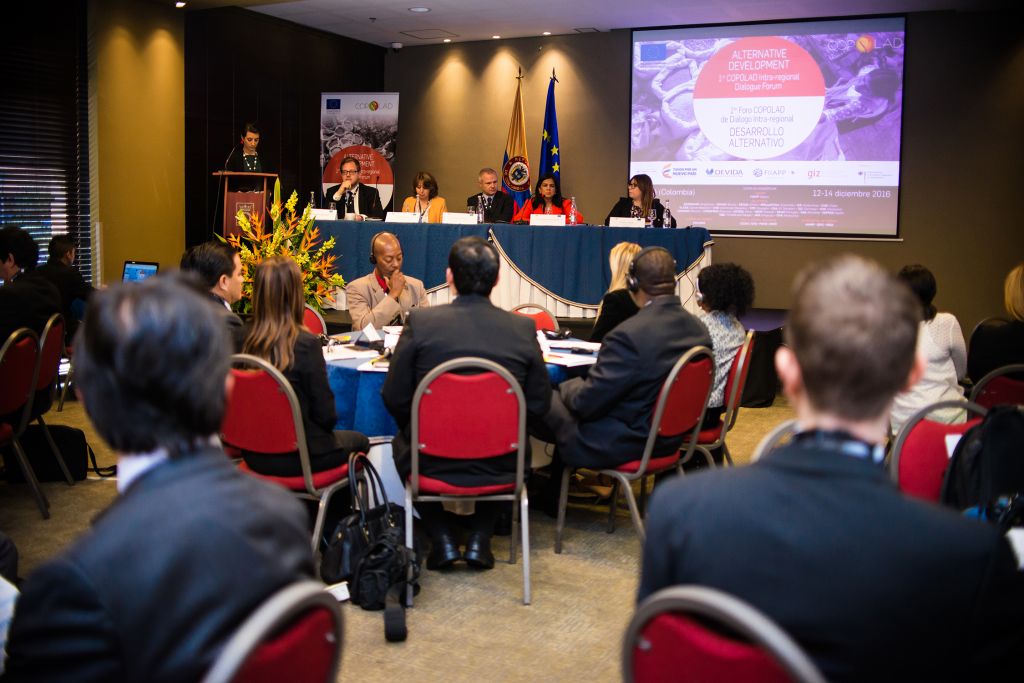Bogotá, 12 December 2016. TheThe 1st COPOLAD II Intra-regional Dialogue Forum on Alternative Development (AD) gathers in its first edition 65 participants on the AD field from Latin America, and for the first time, from the Caribbean region. Delegates from the Bahamas, Suriname, Trinidad and Tobago, and Jamaica joined the high representatives and producers from Mexico, Guatemala, Colombia, Ecuador, Peru and Bolivia.
The meeting is organised by COPOLAD in collaboration with the Deutsche Gesellschaft für Internationale Zusammenarbeit (GIZ) GmbH from Germany, the Government of Colombia and the National Commission for Development and Life Without Drugs (DEVIDA) from Peru.
Along with the representatives of COPOLAD, the opening session has counted with the Deputy Director for Drug Policies and Related Activities from the Ministry of Justice and Law of Colombia, Dr Martha Paredes, Dr. Yalile Martínez Beltrán, General Secretary of the National Commission for Development and Life Without Drugs (DEVIDA), Mr. Emmanuel Hondrath, from the UE Delegation to Peru, Mr. Daniel Brombacher, Responsible of the Global Partnership on Drug Policies and Development (GDPD) of GIZ-Germany.
The Cooperation Programme between Latin America, the Caribbean and the European Union on Drugs Policies (COPOLAD), is a European programme managed by the International and Ibero-American Foundation for Administration and Public Policies (FIIAPP), who promotes this activity that will be developed in Bogotá from 12 to 14 December 2017.
Alternative Development: a concept that enlarges to new domains
This first forum has as its main goal to establish a new space for fostering a decentralised space for promoting the dialogue among key actors in the field of the Alternative Development in the countries affected by the crops which will be used for the illicit production of drugs, addressing strategies for facing this reality. COPOLAD has invited for this purpose, delegates from the affected areas where the coca leaf and poppy are cultivated in order to debate about rural development strategies.
The aim of the activity is to facilitate a general overview of the new tendecies and the way to follow-up the conclusions reached in New York at UNGASS in 2016, like the Sustainable Development Goals (SDG), monitoring its indicators, as well as a broaden socio-economic development in the areas where the illegal activities are developed Furthermore, the meeting is considered as a space for reflection over the implementing experiences and the recent reforms on the Alternative Development field in the CELAC countries, considering that, in many cases, this concept is changing and more countries are getting interested in the topic.
The Forum includes the participation of both government representatives and people involved in Alternative Development projects, as well as other members of civil society, in their capacity as important actors in drug policies at the local level.






